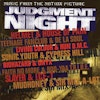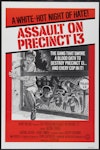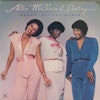Unlike the stereotype-perpetuating scene fostered by filmmakers in the ’70s, blaxploitation’s ’90s incarnation was cultivated from the soundtrack backwards. Although films like Menace II Society or Juice maintain stubborn footing in our hearts, their scripts seem incidental when compared to each soundtrack’s wealth of staggering singles. Although few ’80s babies can likely recall the flimsy premise of Judgment Night, most cul-de-sac rap aficionados will applaud its soundtrack for creatively pairing rap and rock acts, rendering one nonsensical grail of musical matchmaking that parents of all creeds and colors could dislike, in unison.
Conceived under the grunge regime, much of Judgment Night’s talent was culled from the Pacific Northwest, giving a geographic advantage to Seattle’s Sir Mix-A-Lot, whose collaboration with Mudhoney, “Freak Momma,” contained the foreboding ad lib “I think I just lost my street credibility, y’all!” Having conducted his own controversial rock experiment a year prior, Ice-T teamed up with L.A. neighbors Slayer to execute a medley of three songs by U.K. punkers the Exploited. While tracks like Run-DMC and Living Colour’s “Me, Myself, and My Microphone” recognized rap’s Rick Rubinesque roots, most of the tunes tended to favor the rock idiom, demanding that rap participants make larger compromises than their rock counterparts. Poised to compose their own potential eulogy, De La Soul penned a tongue-in-cheek tale of a washed-up rap group who produces a gimmicky song in a transparent attempt to achieve crossover success. Ironically, it was this duet with Ireland’s Teenage Fanclub that would serve as the album’s most enduring single, “Fallin’.”
This lesson in industry synergy sewed rap-rock seeds far and wide, yielding crops of pop misspellings, ranging from Korn to Limp Bizkit to Linkin Park, birthing a lucrative composite genre in the process. Teenagers were able to bring Cypress Hill songs to their bewildered guitar teachers and a major movie studio was able to recoup on a lackluster film with a blockbuster concept. In true blaxploitation fashion, the resulting glory trickled down just short of Black music, putting the finishing touches on a perfect offscreen drama.


